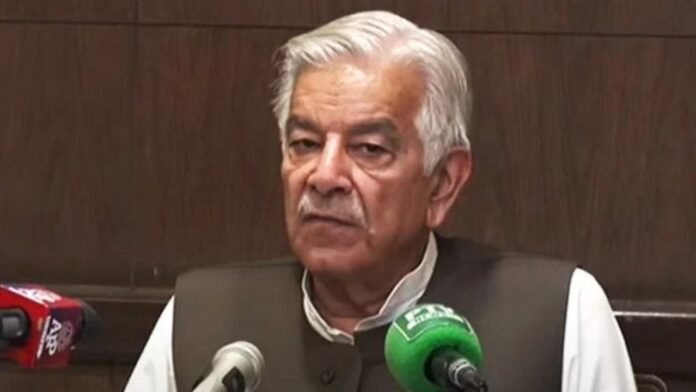Defense Minister Khawaja Asif has recently expressed his stance supporting the practice of phone tapping in Pakistan’s current context. According to him, the issuance of notifications against terrorism is crucial amid the ongoing battle against extremism. In an interview with Independent Urdu, Defense Minister Khawaja Asif emphasized his endorsement of phone-tapping measures, citing their necessity in Pakistan’s current state of affairs.
“This issue is progressing through legal frameworks,” remarked Khawaja Asif, underscoring the importance of such measures for national security. Addressing criticisms from opposition figures, including Omar Ayub and supporters of the PTI, Khawaja Asif suggested they reflect on their previous advocacy for phone tapping, both their own and others, during periods intertwined with their establishment’s endeavors.
Previously, they had vocally supported phone tapping, finding it favorable during liaisons between their establishments. However, today, their stance on the matter appears to have shifted, causing unease among their followers.
Legal Framework and Historical Context
Meanwhile, Federal Law Minister Nazir Tarar clarified that the recently issued Surveillance and Collection of Evidence (SARO) is not a new law but has been in effect since 1996. This legislation empowers intelligence agencies, under government authorization, to conduct surveillance activities to safeguard national security and combat terrorism effectively.
Tarar highlighted that various significant events, including Benazir Bhutto’s testimony, have been instrumental in shaping the application of this law. Since its inception, no subsequent government has amended this law, which remains pivotal in enabling intelligence agencies to operate within legal parameters to ensure national security.
Criticism and Legal Challenges
The debate surrounding phone tapping has sparked controversy, with opposition leader Omar Ayub criticizing the government for what he views as draconian measures under Form 47. He argues that the SARO allows intelligence agencies unrestricted authority over citizens’ privacy, potentially violating fundamental rights.
In response to these concerns, courts anticipate legal challenges to SARO, citing its potentially unconstitutional aspects. Critics argue that granting intelligence agencies the power to intercept communications could lead to misuse for political vendettas, impacting democratic freedoms.
Implementation and Regulatory Compliance
Despite these criticisms, the Ministry of Information Technology and Telecommunication has issued SARO, asserting that it adheres strictly to the provisions of the Pakistan Telecommunication (PTA) Act, Section 54. According to the ministry’s SARO, only officers ranked at least Grade 18 are authorized to intercept and trace calls, messages, or any form of communication.
The unfolding developments surrounding SARO underscore a delicate balance between national security imperatives and protecting civil liberties, prompting ongoing scrutiny and debate within Pakistan’s political and legal spheres.


